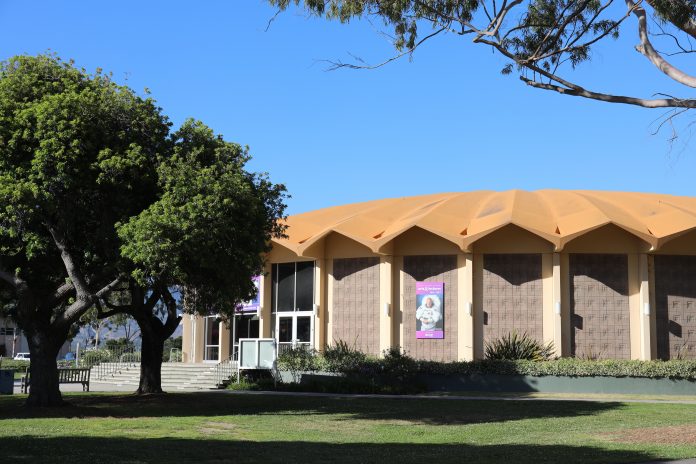Arturo Samaniego
National Beat Reporter
The University of California has experienced a drop in standing in the Quacquarelli Symonds World University Rankings by Subject. The Quacquarelli Symonds Rankings, unlike other ranking reports, compares the UC to other U.S. universities and other global universities.
In the QS rankings released in February, all nine UC campuses were ranked in a variety of subjects from arts and humanities to social sciences and management. Overall, all nine UC campuses combined dropped in 80 categories and improved in 24. There were 48 subjects evaluated in the QS UC subject rankings.
Andrea Estrada, director of news and media relations for UCSB Public Affairs and Communications, commented on the drop in rankings to The Bottom Line.
“UC Santa Barbara’s reputation as one of the world’s top research universities is based on the academic excellence of our renowned faculty and talented students. Although it’s great to be recognized as such, our focus is not on rankings but on the cutting-edge research and the inspiring teaching that define UCSB,” Estrada said.
The QS World University Rankings covers 48 subjects and rates universities in these subject fields by compiling data from four sources. Two of these sources are surveys of academics and employers meant to gauge universities’ international reputations in different subject fields.
The other two sources used for QS subject rankings look at a university’s research impact. These sources include measuring research citations per paper of a university, the number of times a university’s publication was cited, and a measurement of the productivity and the impact of a scientist’s or scholar’s published work.
One subject field UCSB experienced a dip in was environmental studies, which fell from the 38th position to a rank in the #51-100 area. The Environmental Studies program at UCSB was first established back in 1970 and is recognized as one of the first undergraduate environmental studies programs in the world.
UCSB Professor of Soil and Ecosystem Ecology Joshua Schimel blamed the state for the UC’s and UCSB’s drop in rankings.
“The state has been actively disinvesting in UC for years now. Jerry Brown has had little interest in supporting UC and the Legislature has been little better,” Schimel said. “They have been cutting resources and Jerry Brown in his current budget didn’t even live up to the compact he had agreed to, which included a 4 percent increase per year on core funding.”
The Public Policy Institute of California noted that there has been a decline in the state’s support of higher education over the past four decades. In 1976-77, higher education spending in the state amounted to 18 percent of its budget, but it only accounted for 12 percent of the state’s budget in 2016-2017.
Tuition has also increased over the decades with the most recent 2.5 percent hike for all undergraduate students in January 2017. These hikes in tuition coincided with an increase in undergraduate enrollment at UC with the most recent number of undergraduate students placed at 216,747 for fall 2017.
PPIC pointed out that the decline in state funding has hit UC particularly hard, leading to a drop in funding per full-time students from about $23,000 to about $8,000.
Schimel said that the drop in state support has coincided with an increase in the number of students who attend UC campuses and the campuses’ abilities to hire new faculty.
“We are not able to hire the number of faculty we need to maintain our rankings, particularly relative to some of the international universities which have been investing heavily,” Schimel said.
Despite the drop in standing for UC in the QS Ranking report, UC campuses continue to rank high in other reports. U.S. News & World Report ranked UCSB #28 in terms of Best Global Universities for 2018, UC Berkeley was ranked #4, and UCLA was ranked #13. All three campuses, along with a few other UC Campuses, were included in The Princeton Review’s list of The Best 382 Colleges for 2018 which looks at U.S. universities.
Schimel also stated that environmental studies continues to grow strong as new and outstanding faculty are hired and recruitment continues.
“As an integrated system, there continues to be nothing on Earth that compares to UC,” Schimel said. “We are increasingly strained, but we continue to be extraordinary.”
CORRECTION:
Apr. 5, 2:26 p.m.: In an earlier version of this article, The Bottom Line wrote that UCLA was ranked #31 by the U.S. News & World Report. UCLA was ranked #13.











